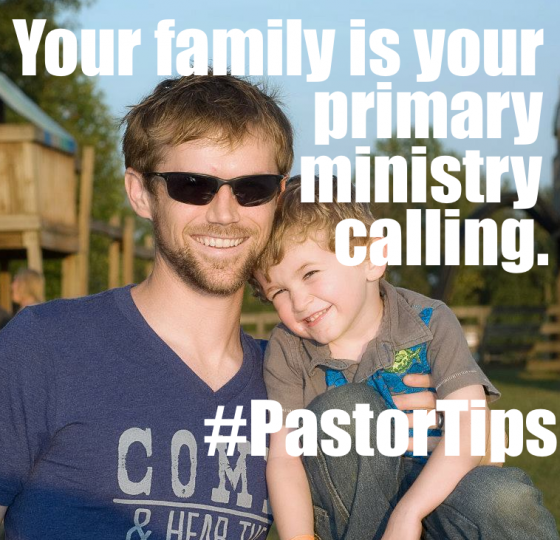I’ve been a pastor on staff at a local church now for over 7 years. In that time, I’ve been the new guy. I’ve been the young guy. I’ve been the guy with dumb ideas. I’ve been the idea killer. I’ve been the guy that made stupid mistakes.

image credit: TheBibleQuotes.org
And I’ve learned a couple of things. Not everything. Not even close to everything. Every day I feel like I’m being bombarded with new ways of thinking, new ways of operating, and new ways of leading here at Long Hollow.
Along the way, I’ve had to remind myself of some truths. And I’ve had to hear words of correction from others. Neither of which is immediately joy-inducing, but each of which has propelled me forward in ministry.
11 Encouragements Young Pastors Need to Hear
1. You don’t know it all.
You’re not the savior of our church staff. You’re not “all we hoped for.” You don’t have all of the answers to all of the questions we’ve been wrestling with. And the answers we’ve landed on have been wrought with prayers, tears, and sweat.
Encouragement: Bring your ideas with humility.
2. Not every hill is worth dying on.
This is a hard one for me, because I can easily find myself making mountains out of molehills. There are ideas, principles, and dare I say…*theological stances* that are better left untouched and buried for the time being. Triage the most important aspects of your ministry, and fight for those. If you go to battle for every one of the ideas you birthed in the seminary classroom, you’ll breed a staff of people who can’t stand to be around you.
Encouragement: Let someone else die on the molehills. Don’t cash in your relational chips on things that don’t matter.
3. The way you love your family now is the way you’ll love them in 5 years.
If you struggle with spending too much time at work now…you will in 5 years, too. If you tend to bring your job your best…and your family your leftovers…that won’t change. You’re dredging out a trench that will grow more and more comfortable to plow through as the years go on. If you don’t like the way you’re loving your family, change now.
Encouragement: Problems, solutions, and emails can wait until tomorrow. Your wife and children can’t.
4. Not everything is urgent.
This is a mashup of #2 and #3, but it stands on its own feet. Email seems urgent. Phone calls seem urgent. Sunday morning seems urgent. But if you don’t carve out time to dream and plan for the future, you’ll look up and 3 years will have passed you by.
Encouragement: Make sure you’re thinking forward for your ministry. Don’t let the urgency of today drown out your dreams for tomorrow.
5. Not everyone will love your ideas.
Whether you’re a small groups pastor or not, all of your ideas won’t be instantly loved and adopted. That shouldn’t persuade you from remaining silent, though. Learn how to lead up, down, and across. Learn how to innovate and build a team. Learn how to lead people well and integrate your ideas into the life of your church’s culture.
Encouragement: Get a thicker skin, take criticism seriously, and lead people well.
6. You’re not God.
God doesn’t sleep. You need to.
God changes hearts. You don’t.
“There is a God, and it is not you.” – John Ortberg
Encouragement: “Reminding ourselves of the gospel is the most important daily habit we can establish.” – CJ Mahaney, The Cross Centered Life
7. Time with God isn’t easier because you’re a pastor.
Many people naively assume that pastors just sit around, read our Bibles all day, and sing Kumbaya. Let the record show: I’ve never sang Kumbaya in my office. Just because you’re a pastor doesn’t mean that carving out personal time with God happens easily. Emails, meetings, phone calls, tragedies, meetings, videos, and meetings happen naturally.
Encouragement: Don’t neglect personal worship.
8. Leadership will be more important than theology on a day-to-day basis.
Before you hang me out to dry, know that I’m a theologian. I love to dig in and wrestle through theology. I love a good theology book and a good lecture. But nobody cares what you believe about your thoughts on the authorship of the book of Hebrews when their marriage is falling apart. When life doesn’t make sense, nobody leads with, “Who are the Nephilim, really?” Are there potentially important things about the authorship of Hebrews that come to bear? Yep. But the way you lead your staff and congregation will be more important than what you believe about the Nephilim. Or about Calvinism.*
Encouragement: Get your hands on some good leadership books. Maxwell, Osborne, and Godin are all pretty good places to begin.
9. Seminary is good. But it won’t prepare you for much of ministry.
It’s easy to get comfortable in the ivory tower. But real ministry rarely happens there. It happens on the street-level. I learned lots there…but not everything.
Encouragement: Don’t let your seminary education get in the way of you loving people.
10. Investing in the next generation doesn’t come naturally.
Look at your role as preparing the next generation of leaders. Even if you’re 22 year old. Or 32. Or 62. The next generation needs you! Spend time investing in people by bringing them along with you when you are doing the work on ministry. Help them to know what you know, see what you see, lead how you lead, and love how you love. Then turn them loose to use their gifts and passions!
Encouragement: Bring people with you when you do ministry.
11. Build in individual accountability, because nobody will do that for you.
Spoiler alert: you’re going to be tempted to sin. Maybe even more so as a pastor. Satan would love nothing more than to destroy your marriage, your local church, and your ministry. Asking other people to speak in to your life on a consistent basis will help guard against this.
Encouragement: Surround yourself with people whom you can be open, honest, and transparent with.
*I think that these things are incredibly important. Especially Reformed theology. What you believe informs how you live, how you preach, and how you counsel. But it’s easy to become a “Calvin-ite,” a “John-Piper-ite,” or a “Mark Driscoll-ite,” making a bigger deal out of them (what they believe and how they operate in ministry) than out of the way you are to contextualize the Gospel for the people you are called to lead. Be careful in how you wield your theology.










